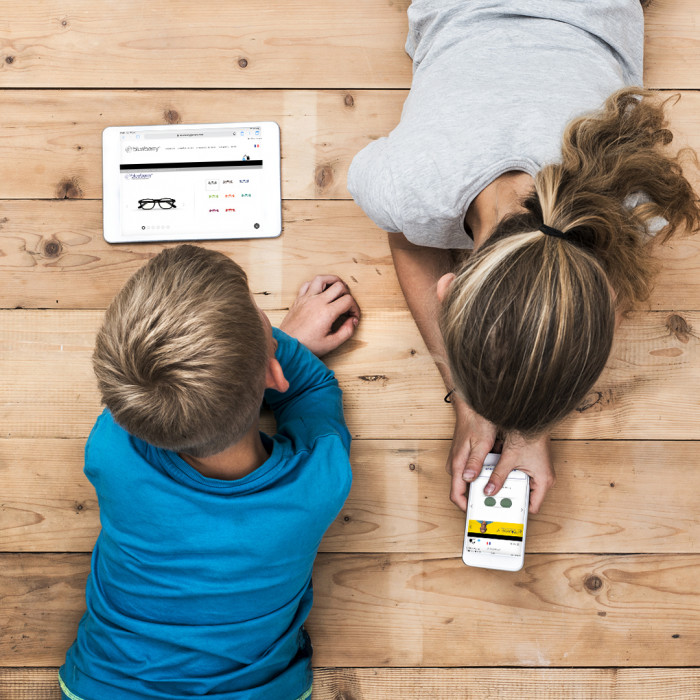on Thursday 11 July 2019, 10:17 - Permalink
LED is great for saving energy and we find it everywhere: lighting, cars, children’s games, screens, etc. But their toxicity to the retina is increasingly called into question by specialists. It’s true, these little lights are rich in blue light, and blue light, as you know, is very dangerous for the retina.
Therefore, it is necessary to protect not only yourselves, but your children, too.

Zoom in on blue light
When we say blue light, you most likely think of screens. You might assume that because you don’t expose your children to screens, they’re out of danger. Not true. Your children’s toys and gadgets transmit just as much blue lights as screens and lights.
There are two types of risks associated with blue light:
- The disturbance of biological rhythms: Melatonin, or the sleep hormone, is disturbed by blue light and can prevent sound sleep. Children are even more exposed as their retinas are more sensitive.
- Retinal toxicity: Blue light causes vision problems and can lead to age-related macular degeneration. However, these disorders are not directly related to screens but rather to exposure to very strong lights.
Blue light can also cause migraines, retinal fatigue, etc. These risks are real and are reasons for you to protect your eyes and those of your children!
Protect your children’s vision
Since prevention is better than treatment, Blueberry has designed their anti-blue light glasses for youths. In fact, our BlueberryGlasses were first thought of with children in mind. The creator found that their own children were spending a lot of time in front of screens and that their more fragile retinas were being exposed to blue light. As children’s lenses are still developing, they don’t completely do their jobs as filters. Overexposure to blue light can, therefore, create vision problems.
Our advice to avoid vision problems
To preserve the visual health of your children (and yours, too), we advise:
#1: To use our anti-blue light BlueberryGlasses adapted for both adults and children
#2: To visit your ophthalmologist regularly
#3: To adjust the brightness of your screens, particularly in the evenings, opting for a lower luminosity and warmer colours
#4: To limit screen use to one hour per day and furthermore to avoid screens before going to bed
#5: To take advantage of the summer weather to play outside and forget about artificial lights!
Wishing you all a happy summer holiday! ;)










